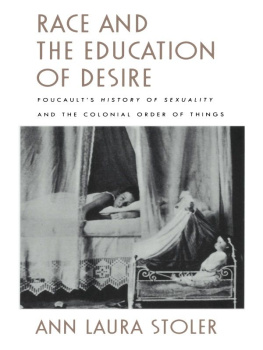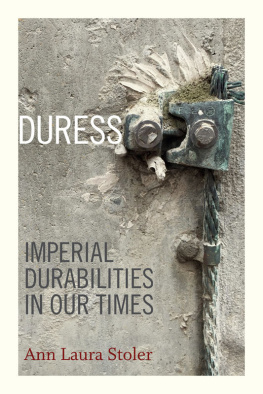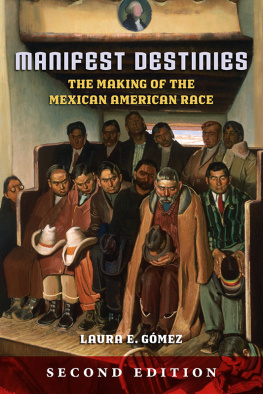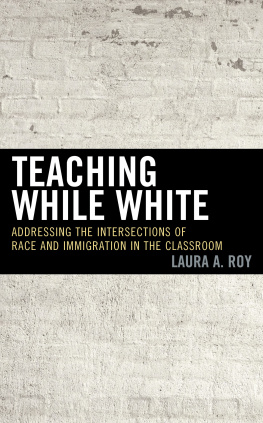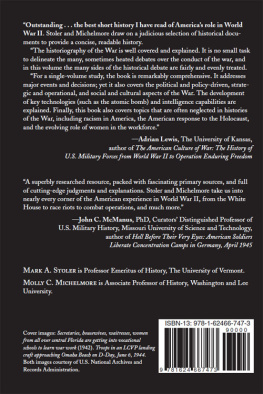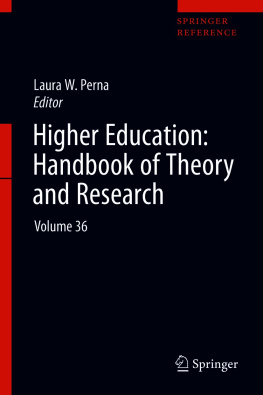Ann Laura Stoler - Race and the Education of Desire
Here you can read online Ann Laura Stoler - Race and the Education of Desire full text of the book (entire story) in english for free. Download pdf and epub, get meaning, cover and reviews about this ebook. year: 1995, publisher: Duke University Press, genre: Politics. Description of the work, (preface) as well as reviews are available. Best literature library LitArk.com created for fans of good reading and offers a wide selection of genres:
Romance novel
Science fiction
Adventure
Detective
Science
History
Home and family
Prose
Art
Politics
Computer
Non-fiction
Religion
Business
Children
Humor
Choose a favorite category and find really read worthwhile books. Enjoy immersion in the world of imagination, feel the emotions of the characters or learn something new for yourself, make an fascinating discovery.
- Book:Race and the Education of Desire
- Author:
- Publisher:Duke University Press
- Genre:
- Year:1995
- Rating:3 / 5
- Favourites:Add to favourites
- Your mark:
- 60
- 1
- 2
- 3
- 4
- 5
Race and the Education of Desire: summary, description and annotation
We offer to read an annotation, description, summary or preface (depends on what the author of the book "Race and the Education of Desire" wrote himself). If you haven't found the necessary information about the book — write in the comments, we will try to find it.
Race and the Education of Desire — read online for free the complete book (whole text) full work
Below is the text of the book, divided by pages. System saving the place of the last page read, allows you to conveniently read the book "Race and the Education of Desire" online for free, without having to search again every time where you left off. Put a bookmark, and you can go to the page where you finished reading at any time.
Font size:
Interval:
Bookmark:
BY
DUKE UNIVERSITY PRESSDurham and London1995
1995 Duke University Press
All rights reserved
Printed in the United States of America on acid-free paper
Typeset in Joanna by Tseng Information Systems, Inc.
Library of Congress Cataloging-in-Publication Data appear on the last printed page of this book.
This book emerged out of a number of questions I began mulling over some fifteen years ago when I first read Michel Foucaults The History of Sexuality while writing my dissertation in Paris. As my own work has focused over the last decade more squarely on the sexual politics of race, those questions have felt more pressing than ever before. At a time when Foucaults work has had such an enormous impact on anthropology and on the discursive and historic turns within it, why have contemporary scholars dealt in such an oblique way with the slimmest and, some might argue, the most accessible of his major works, volume I of The History of Sexuality? More precisely, why has colonial studies, where issues of sexuality and power are now so high on the intellectual and political agenda, had so little to say about it? In a field in which reading that volume seems de rigueur and reference to it confers intellectual authority, what accounts for this striking absence of an engagement that is analytically critical and historically grounded at the same time?
This study begins with some obvious questions: Why, for Foucault, colonial bodies never figure as a possible site of the articulation of nineteenth-century European sexuality? And given this omission, what are the consequences for his treatment of racism in the making of the European bourgeois self? More troubling still are the implications for those of us who have sought to extend Foucaults approach to sexuality and power into imperial settings. Do we run the risk of reproducing precisely the terms of colonial discourse itself where any and everything could be attributed to and/or reduced to the dangers, contaminations, and enticements of sex?
This book is an effort to address some of these questions, to redress that absence of reflection, and to reread volume I of The History of Sexuality in what I think is an unexplored light. It questions both Foucaults account of the technologies of sexuality that pervaded Western Europes nineteenth-century bourgeois order and his marginalization of that orders imperial coordinates and their effects. But it also sets out to do something more, to register a part of Foucaults analysis that seems to have eluded those of us in colonial studies: namely how he conceived the discourses of sexuality to articulate with the discourse of race. Empire may be absent from The History of Sexuality, but racism is certainly not. How do we reckon both with the books categorical effacement of colonialism and our overwhelming silence about Foucaults at once conventional and idiosyncratic handling of racism in it?
Contrary to the evidence from most other commentators, race is not a subject marginal to Foucaults work. As I argue here, it is far more central than has been acknowledged or explored. It is certainly more integral to his thinking than I first imagined when I began this book as an essay on The History of Sexuality two years ago. At the time, my assessment of Foucaults interest in race was based solely on his written work. Later in Paris, I had the opportunity to listen to the French recordings and read the Italian transcripts of the lectures Foucault gave in 1976 at the Collge de France. Some have cast those lectures as an elaboration of the final chapter of The History of Sexuality, others as a foray into political theory. But I was startled by what else they contained, for they also represent Foucaults equivocal effort to sketch out a genealogy of the discourse of race. I draw on them here, not to provide a clue to what Foucault really thought, but rather to investigate the tensions between what he wrote and what he said. As importantly, I want to ask how these tensions might help us rethink the connection between European and colonial historiography, between a European bourgeois order and the colonial management of sexuality, as well as how those tensions might bear upon how we go about writing genealogies of race today.
This is neither the celebration of the canonical text of Foucault as culture hero. Nor is this a subtle effort to undermine his powerful conceptual claims. My task is both more humble and ambitious: namely, to read Foucaults work against issues with which he grappled for years, sometimes with prescience and great acumen, other times with what he characterized as only marginal success. I am interested in identifying the impulse of his venture, the contingent space of ideas, the precluded venues of enquiry, the selective genealogies by which hisand ourwriting of history has been constrained.
In response to the Italian journalist, Duccio Trombadori, who asked Foucault about the relationship between his earlier work and his then recently published volume I of The History of Sexuality, Foucault answered:
If I had to write a book to communicate what I have already thought, Id never have courage to begin it. I write precisely because I dont know yet what to think about a subject that attracts my interest.... As a consequence, each new work profoundly changes the terms of thinking which I had reached with the previous work. In this sense I consider myself more an experimenter than a theorist; I dont develop deductive systems to apply uniformly in different fields of research. When I write, I do it above all to change myself and not to think the same thing as before.
If Foucault thought it took courage to write what he already knew, most of us might think it takes more courage to admit a lack of sure-footed intent, that in beginning few of us are sure what will come out at all. Some might argue that such an admission could only be enjoyed by someone whose innovative contribution was already secured. Others might be inclined to look more askance, to dismiss the statement as a disingenuous disclaimer, a display of false modesty by Frances then leading intellectual whose master plan was evident in a patterned corpus that spanned nearly twenty-five prolific years. Either reading would do an injustice to Foucault by missing the tenor of his work, the persistent questioning that compelled his ventures. It would be to misrecognize how much his recursive style, his serial framings of what something was through concentric negations about what it was not, were part of a thinking out loud that not only transformed his books but has allowed his readers a unique sort of engagement with them.
Certainly any close reading of volume I of The History of Sexuality would support his methodological claims. For that volume is at once a recuperation of and departure from themes addressed in his earlier work. It represents both a renewal of a concern with how discursive formations are shaped and a reconception of power and how power transforms those formations. It takes us from an earlier focus on the normalization of power described in Discipline and Punish to a broader concern with the power of normalization. It replays themes of disciplinary regimes, but distinguishes between individual disciplines and social regulation in new strategic ways. It first introduces the cultivation of the self as a defining feature of the nineteenth-century bourgeoisie. Later, as Foucault shifted course in volumes two and three, that self-cultivation is recast as part of a deeper genealogy of ethics that pushes him back to antiquity, away from nineteenth-century France which had long been his preoccupationa move that some historians have seen as a limit to the larger applicability of his speculations. Volume I of
Font size:
Interval:
Bookmark:
Similar books «Race and the Education of Desire»
Look at similar books to Race and the Education of Desire. We have selected literature similar in name and meaning in the hope of providing readers with more options to find new, interesting, not yet read works.
Discussion, reviews of the book Race and the Education of Desire and just readers' own opinions. Leave your comments, write what you think about the work, its meaning or the main characters. Specify what exactly you liked and what you didn't like, and why you think so.

